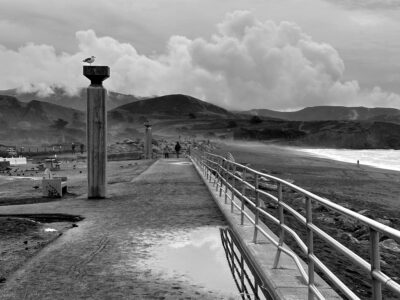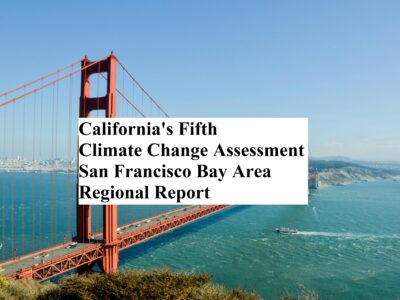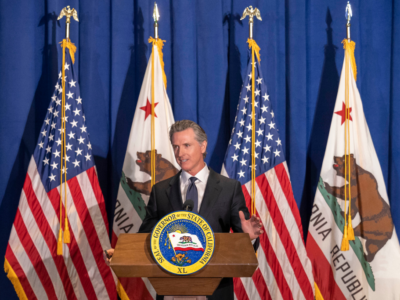Climate Adaptation
Climate Adaptation Finance: Garbage In, Garbage Out
A new study reveals the hard truth about the lack of real adaptation data.
Today in Science, a new study delicately uses a lot of words to tell us something that many have long suspected: we really don’t know what in the world is going on. The study, by three scholars at Oxford University’s Environmental Change Institute, notes that pretty much all climate adaptation funds focus on inputs — how much has …
Continue reading “Climate Adaptation Finance: Garbage In, Garbage Out”
CONTINUE READINGLast Year’s Climate Bond May Not Be What You Thought
While investing in important adaptation and resilience measures, Proposition 4 does less to create new clean energy infrastructure investments
Last year, legislators passed, the governor signed, and California voters approved, a ten billion dollar climate bond (the Safe Drinking Water, Wildfire Prevention, Drought Preparedness, and Clean Air Bond Act of 2024, SB 867 (Allen), which appeared on the November ballot as Proposition 4). While the bond act’s full title largely tells the story of …
Continue reading “Last Year’s Climate Bond May Not Be What You Thought”
CONTINUE READINGWe need integrated funding to scale up multibenefit projects
by Marie Grimm, Anna Serra-Llobet, Molly Bruce, and Michael Kiparsky
Climate and ecological challenges are fundamentally linked, demanding solutions that address both environmental and social issues. Multibenefit projects–like levee realignments that reconnect floodplains–can combine climate adaptation, water management and ecosystem restoration efforts. However, most funding programs focus on single-purpose projects, making it difficult to support multibenefit solutions. Our new article studies the Pajaro River flood …
Continue reading “We need integrated funding to scale up multibenefit projects”
CONTINUE READINGCoastal Act Requires Strict Protection from Harmful Seawalls
Students with UCLA’s Frank G. Wells Environmental Law Clinic are giving testimony before the California Coastal Commission on a critical issue.
As coastal communities up and down California contend with sea-level rise, they’re facing tough decisions about how to update their land use plans. One of UCLA Law’s environmental clinics is helping lead the way. Over the last several months students in the Frank G. Wells Environmental Law Clinic, Maeve Anderson, Mackay Peltzer, and Jacqueline Diaz …
Continue reading “Coastal Act Requires Strict Protection from Harmful Seawalls”
CONTINUE READINGChevron’s Losing Play to Avoid Big Damages
Chevron sponsored Super Bowl LIX events and science classes for New Orleans children just weeks before a Louisiana jury ordered it to pay $745 million in damages.
In February and March, Chevron generated headlines for its charity at the Super Bowl in Louisiana. This month, the oil company made very different headlines for being ordered to pay $745 million for damage to the Louisiana coast after a jury verdict. One of these stories shows the company as a town hero in a …
Continue reading “Chevron’s Losing Play to Avoid Big Damages”
CONTINUE READINGHelp Shape the Bay Area’s Climate Future
Seeking input from local leaders, organizations, and individuals to shape California’s Fifth Climate Assessment for the region
The California Climate Change Assessment is a key initiative to understand and address the state’s climate impacts and build resilience through informed decision-making. California’s Fourth Climate Change Assessment included a series of technical reports, regional summaries, and a statewide synthesis covering key issues such as extreme heat, wildfires, and sea level rise—providing critical guidance for …
Continue reading “Help Shape the Bay Area’s Climate Future”
CONTINUE READINGField Notes from India: Climate Adaptation from the Ground Up
Two days with climate educators in Ahmedabad, India changed my understanding and appreciation of climate resilience.
I spent last week in New Delhi, participating in the conference, India 2047: Building a Climate-Resilient Future. Academics, civil society, and government officials were divided into groups focusing on science, health, labor, and the built environment. It was fascinating to explore the daunting challenges India will face as many of its regions confront daily temperatures …
Continue reading “Field Notes from India: Climate Adaptation from the Ground Up”
CONTINUE READINGClimate Takeaways from Newsom’s Budget Proposal
The Governor’s proposed 2025-26 budget would tap the recent voter-approved climate bond and seek new emergency funds.
For more than a month, California has worked at “Trump-proofing” the State budget. Now you could say the Governor is looking to fire-proof it too. On Friday, as wildfires continued to rage across Southern California, officials from the California Department of Finance presented the Governor’s proposed 2025-26 budget. Earlier in the week, the Governor—who has …
Continue reading “Climate Takeaways from Newsom’s Budget Proposal”
CONTINUE READINGLA Fires and the Climate Connection
New UCLA research connects the dots between the climate crisis and the supercharged LA wildfires. “Hydroclimate whiplash” means worse floods, droughts, and fires.
Like millions of Angelenos, I’ve been staying indoors and off the roads, glued to the Watch Duty app, radio, and TV coverage as LA is engulfed by these historic fires. The last 48 hours of coverage has focused, understandably, on the firefight and immediate devastation. Now, it’s time to start hearing about the climate connection, …
Continue reading “LA Fires and the Climate Connection”
CONTINUE READINGSix Things to Know about Rights of Nature
More than 500 Rights of Nature laws and policies have been passed globally. Here’s how to make sense of this nascent movement — or movements.
This Fall, I have been co-teaching a course on Rights of Nature with the historian Jill Lepore. This is the first time either of us have taught the subject and it has proven a wonderful opportunity to explore with our students this emerging movement — one that some have praised as “A Legal Revolution That …
Continue reading “Six Things to Know about Rights of Nature”
CONTINUE READING












